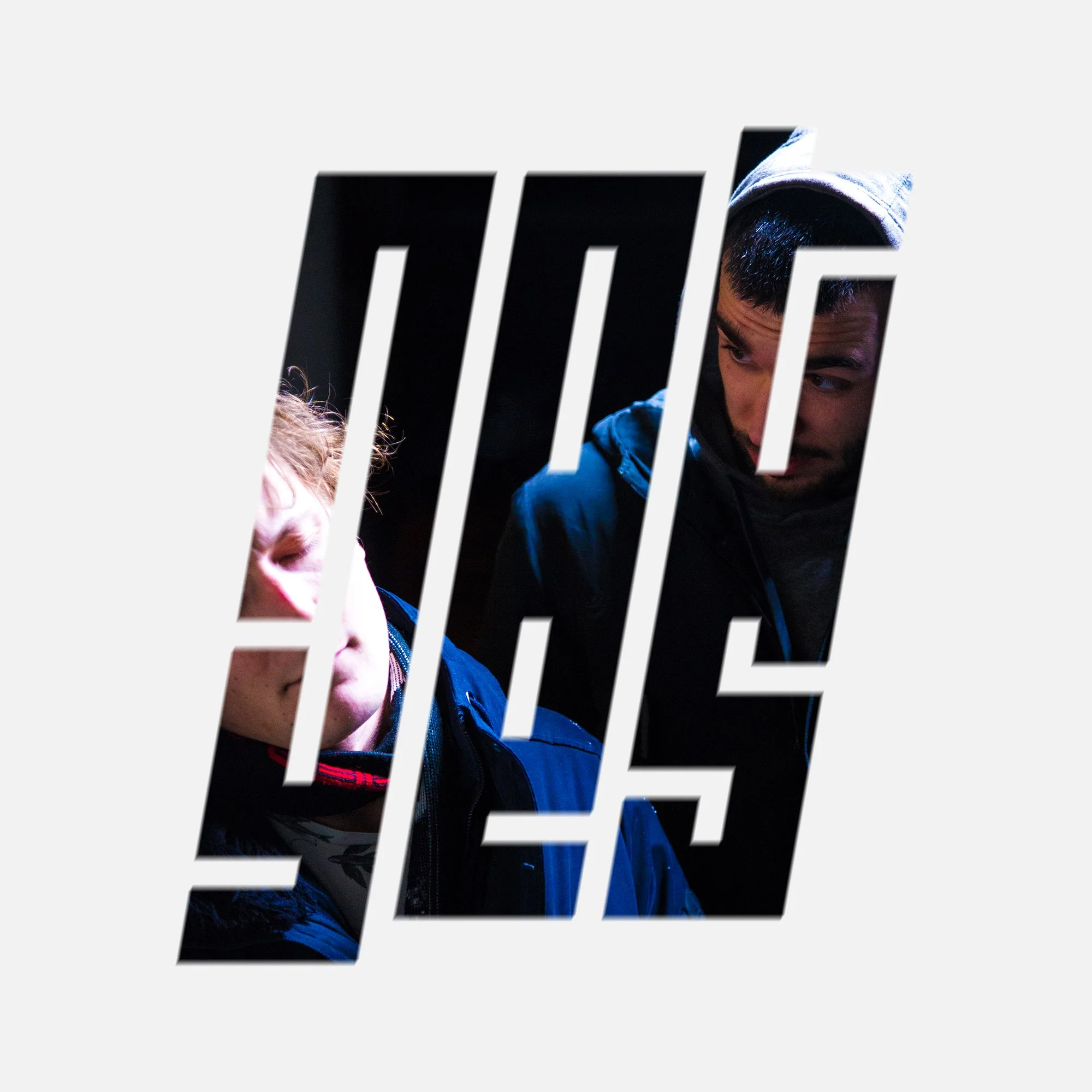Neuro music has evolved to encompass a plethora of sounds and styles, growing from an offshoot of drum’n’bass into an entire production philosophy over the course of the last decade. The neuron-firing sound design and high-fidelity, speaker-shredding textures of the genre have become commonplace in the catalogs of today’s incoming broken-beat electronic producers. That’s partially thanks to a handful of individuals who not only pushed the boundaries of production and engineering, but went a step further and gave other musicians relatively free, in-depth access to their production tricks and thought processes. .
COPYCATT performing at BBQ Bass
COPYCATT is one of these standard-bearers of neuro music. He’s a staple of the sound, and anyone who explores neuro with honest curiosity will come across his music. Hailing from Queensland, Australia, Andre Butterworth has been producing and contributing his production knowledge to the world for the last five years and running, all the more impressive when you learn he’s just 22 years old. He constantly makes himself available to curious fans, hobbyists, and contemporary producers through a series of production-based video streams and tutorials. Many of his songs, like 2017’s “Tom’s Battery” with Frequent, have traveled around the world on sound systems. As a result, his influence is tremendous, but this comes as a surprise to Andre.
Releasing just below 40 tracks, COPYCATT has maintained a catalog of monstrous cuts. Every song features a potent mix and master, and that sonic clarity has become a big part of his reputation today. Crafting wild, isometric sounds is one thing, but using them well is an entirely different matter. COPYCATT’s music isn’t just an amalgam of vicious noise and transient downbeats. It has a groove and soul of it’s own, channeling powerful melodies through raucous, warped bass lines.
Although he’s open about his production processes online, COPYCATT is still somewhat enigmatic, in part because he’s never performed in the States, the current hotbed of neuro music. Now, for the first time, he goes on the record with The Rust and illuminates other aspects of his project beyond production: his broad, diverse influences from Madlib to Skrillex, his visa troubles, and his raw feelings about his own art and processes. As a companion to his exclusive interview, COPYCATT has delivered an exclusive mix of IDs, which we will release next week through the Rusted Rhythms mix seres. Stay chooned.
The Rust: Since you’re based out of Australia, you’re in the same boat as quite a few other major players in alternative electronic music. Can you talk about the music culture where you’re from? What’s actually in the water over there?
Andre: It's an odd scene over here. I think Australia has this kind of younger brother complex where we all think every other country has more talent than we do, and so we don't take our own content very seriously. A lot of the musicians I know here also don't take Australia very seriously as a place to have a career in music, and in a corresponding way a lot of the major music sources and radio stations here don't take Australian artists seriously until they find their way into an overseas market like the US, hence a lot of the successful people tend to plant their success elsewhere. There's a lot of incredible talent here though, and most of it is pretty much undiscovered. I've met some of the most talented producers here with less than 100 SoundCloud followers, and they usually live in some rural area and just churn out great music for the fun of it.
The Rust: In the United States especially, you have a high reputation amongst incoming and established producers alike, with many crediting you on their shorthand list of sound design inspirations. How do you perceive that reputation?
Andre: I do find it pretty bizarre to hear that. I think because there's not much of a scene here in Australia for the kind of music I make, I find it hard to imagine what people tell me about the way it's received in places like the United States. My friends who live in the States message me when they hear my tracks being played out at festivals and send me videos and it always freaks me out. I have a bit of a bittersweet joy about it, because usually I'll send my demos to guys like Chee and Frequent to play out at their shows, but if I don't have many shows lined up at the time, the show that they play will probably be the first time anybody hears that demo. But I really love the thought that there's a culture for the stuff I like to create, so I can't complain.
The Rust: How did you find yourself so enamored with thick bass music in the first place?
Andre: I used to be into thrashy hardcore stuff back in my pre-teens, and I remember my friend (also kind of my music dealer at the time) showed me “Firepower” by Wolfgang Gartner. I think I got pretty hooked on electro from that point, and then of course Skrillex happened and I decided “yoys” were the future of music. KOAN Sound was the next big shift for me a few years later, and about the same time I started getting into hip-hop artists like Madlib, Pete Rock, and J Dilla. So here I am now at mid-tempo, crunchy bass music.
The Rust: Rhythmically, you seem to have a strong foothold in traditional, golden-age hip-hop. Have you always made music in that fashion?
Andre: I used to make what people now call "Bro-step", but at some point a few years back I think I heard some Nujabes in a cafe or something, so I went home and looked up "jazz gangster beats" (I wasn't raised in a place where hip-hop was popular as you may have guessed). I found “Trashy” in that Vintage Vol. 2 beat tape by J Dilla, and got hooked on his sound immediately. Then I found Madlib's Album Shades Of Blue (now “Distant Land” is my favourite song of all time). I thought it'd be easy to make until I actually tried it and made the most boring beat ever. Then I decided to actually drop a J Dilla track into FL Studio and after looking at it properly I realized there’s a fair bit to actually achieving the right kind of swing. I guess I’ve spent the last few years trying to emulate that sound in the music I make. Also, I honestly have to credit Tony Hawk's Pro Skater 2 (and the cereal box the game came in) for repeatedly subjecting me to “Guerilla Radio” by Rage Against The Machine. It's not golden-age hip hop, but that heavy mid-tempo riff is printed in the way I write my riffs for sure.
The Rust: One contemporary school of thought on production is to separate sound design and composition. Can you walk us through some of your typical production and songwriting processes? What defines your product as “finished”?
COPYCATT mid-set at Twisted Frequency 2019
Andre: It definitely feels like there's a distinction between sound design and song writing in my process. Sometimes sound design feels like playing video games - I have sessions where I just find cool sounds and play with processing or try to emulate something I've heard before. Composition at the moment feels like it happens when I take a sum of things that I like and combine it with sounds that I've made in those experimental sessions. "Finished" is a totally ambiguous concept for me. I'm starting to adopt the idea that an idea is never finished, and there's never a time when you can't continue expanding on an idea and finding new ways to explore it. In terms of releasing a song I'd say it's like putting a sort of checkpoint on something and saying "Yeah I like where this is at right now, this sort of makes sense." My best projects are big scattered messes of stuff that I might only use a small portion of to create a cohesive track. All in all, my creative process is to make a huge mess and then find the gold in it.
The Rust: You just released a huge trove of great music on your SoundCloud account, quietly and with no fanfare. Were you just sitting on a few in the cannon and decided to fire them out?
Andre: I think creativity is a lot like human metabolism. You ingest inspiration, then you digest it to find the experience that you love (the 'emotional nutrients'), and eventually you shit out whatever you created in the process of discovering that experience. My problem is I’ve had creative constipation for like three years - lots of inspiration going in, lots of ideas being extracted and processed, but nothing coming out the other end, probably because I wanted to control what my shit looked like, which I now know is not healthy or possible. I'm not a doctor but I'm pretty sure that if you don’t shit for a while your metabolism slows down and stuff goes bad in your gut, so no matter what that shit looks like you’ve gotta get it out. That’s what I’m doing right now. Taking a big creative shit so I can continue functioning. No marketing, no fanfare, no album cover. Just a big shit. And that’s also the inspiration for the ID’s mix.
The Rust: Recently, you had to withdraw from a number of U.S. tour dates due to issues with the work visa process, and you’re certainly not alone in that regard. Would you mind speaking about your experience trying to secure a visa?
Andre: Being an inexperienced 22-year-old with no experience in being qualified to work in another country, I can definitely say the process of getting approval to perform in the US comes as a pretty big hurdle. This is my first time applying, and I'm honestly lucky I have people like the guys at Sub.mission agency and other experienced musicians who do know what they're doing and who are willing to help me get through it. If you want the nitty gritty details, to get a three-year permit as a solo musician, it's between $1,000 and $3,000 AUD (depending on whether you'd like to wait literally three months for it) and there's a ridiculous criteria you have to meet to get the US embassy to even bat an eyelid at your application. So consequently we've pushed back a fair few tour dates to make sure we do it properly and tick every box. Long story short it's a right royal pain in the ass but it's worth it, and I'm excited to see the other side of it.
The Rust: At 22 years old, you’ve succeeded in gaining international recognition for your art. What’s next?
Andre: At this stage all I really want is to make really good music. I think an album is definitely past due for me right now, which I've avoided probably because of my own fears and insecurities, but there's a lot of sounds I'm exploring that I've yet to actually incorporate into my music so I'm making room for that kind of growth before I drop a huge official chunk of COPYCATT stuff out there. I'm also sitting on about three years worth of random beats that I really enjoy listening to so I thought this mix would be a good way to relieve some of that pressure in the meantime. Other than that my only other goal is to surpass watching videos of other people playing my tunes and actually be the one playing my own music out at festivals. That would be kinda nice.
-
FOLLOW COPYCATT: Soundcloud / Spotify / Bandcamp / Facebook





![Seppa - Interview + Boosted [EXCLUSIVE PREMIERE]](https://images.squarespace-cdn.com/content/v1/59530136f5e2319eabb7d87f/1626113208781-BZ7C6B7E3LCECV7UD4CS/Boosted.jpg)
